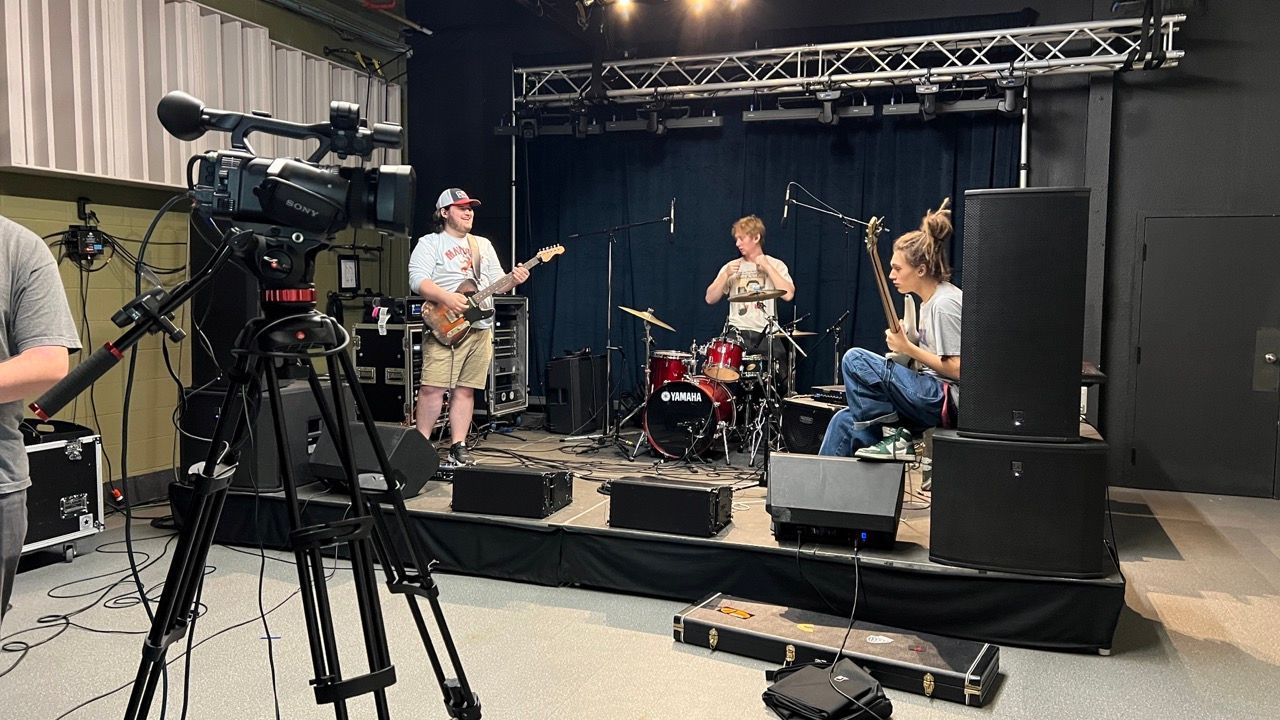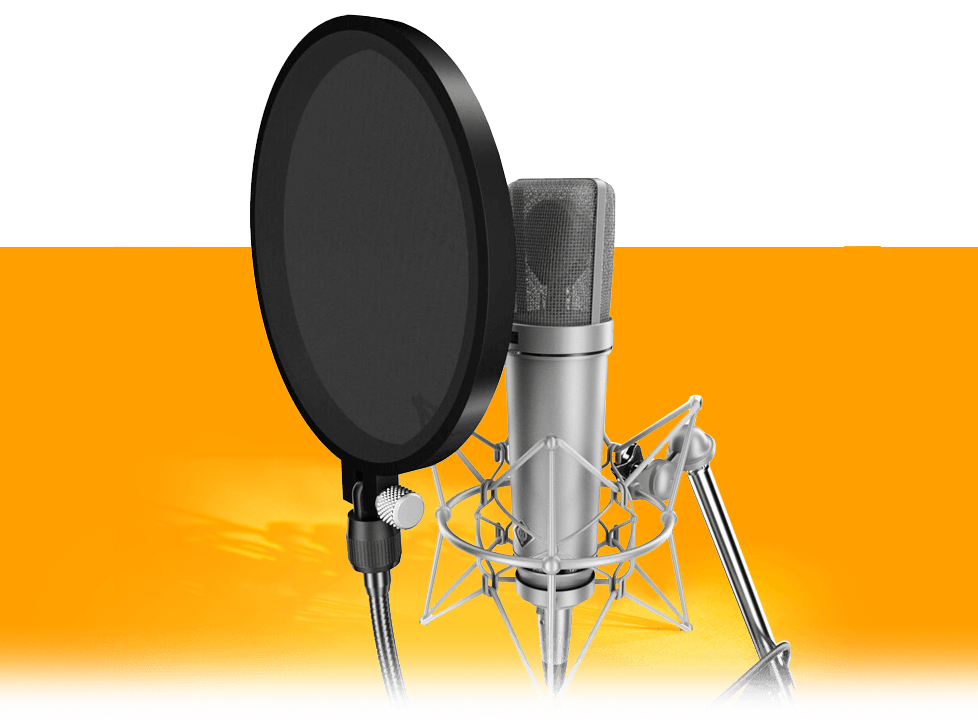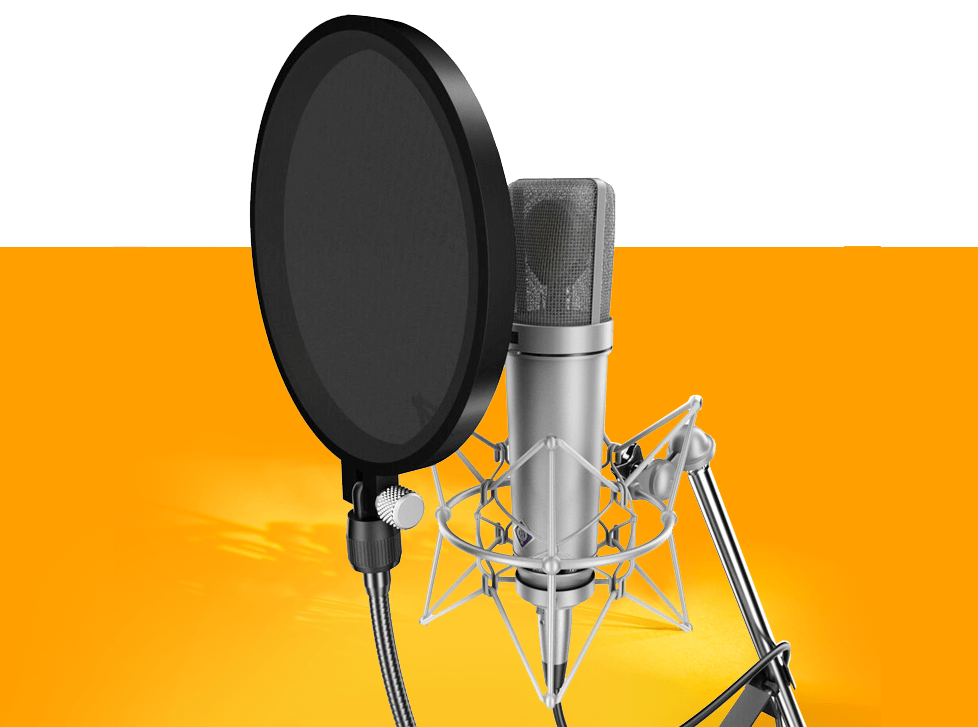How to Choose an Audio Engineering School in 2024/25
Jeremy Alves | November 7, 2023
Choosing the right choice from all available audio engineering schools involves considering several crucial factors. It can be daunting to gather all the necessary information and start comparing, but it’s essential to put in the time to make the right choice.
You need to evaluate the curriculum, understand faculty expertise, have well-equipped facilities, be affordable, and foster a collaborative community. It’s a lot to examine, but it's worth putting in the time to find the right one for your needs.
The right choice should align with your goals and provide a comprehensive education in a conducive learning environment, setting you up for success in the audio engineering field.
So, let’s review why you should go to a school, cost vs. earning, and then how to hone in on the right audio program for you.
Why Should You Go to a School of Audio Engineering?
Attending one of the best audio engineering schools can offer several valuable benefits for individuals aspiring to pursue a career in music production, sound engineering, and other similar fields.
For some jobs, you’ll struggle to land an interview without being able to prove you’re ready to handle leading-edge equipment and the responsibilities involved — making attending a course or college crucial to starting your career.
Let’s go over some key reasons why it’s worth attending an engineering or audio recording course:
- Structured learning: Audio engineering schools provide a structured curriculum to systematically cover essential topics, techniques, and technologies.
- Comprehensive education: Schools offer a well-rounded education that covers various aspects of audio engineering, including recording, mixing, mastering, acoustics, signal processing, and music theory.
- Hands-on experience: Many schools have state-of-the-art recording studios, labs, and equipment that allow students to gain practical, hands-on experience in a controlled environment.
- Expert instruction: Receiving guidance from experienced instructors who are often industry professionals can accelerate your learning and provide valuable insights.
- Access to equipment: Schools often have access to equipment that might be expensive or difficult to obtain individually, allowing you to learn on professional-grade gear.
- Networking: Attending a school allows you to connect with fellow students, instructors, and industry professionals, building a valuable network that can help with future collaborations and opportunities.
- Industry connections: Reputable schools often have connections with recording studios, production companies, and other industry entities, which can lead to internships and job opportunities.
- Feedback and critique: Instructors and peers can provide constructive feedback on your work, helping you refine your skills and techniques.
- Focused environment: Immersing yourself in a dedicated learning environment can help you concentrate on your studies without distractions.
- Portfolio building: School projects can serve as building blocks for your portfolio, showcasing your skills to potential clients or employers.
- Exposure to different genres: Schools often expose you to various musical genres and styles, broadening your knowledge and adaptability.
- Real-world projects: Some programs offer opportunities to work on real-world projects, such as recording local bands or producing tracks for artists.
- Learning industry trends: Schools aim to keep their curriculum current with industry trends, ensuring you learn the latest techniques and technologies.
- Job placement assistance: Many schools offer job placement services, helping graduates connect with potential employers in the industry.
- Confidence building: Completing a formal program can give you a sense of accomplishment and the confidence to approach projects professionally.
- Career Management: An Audio engineering college should provide insight to the nuances with applying to a job. For example, when applying to a union, international work visas, jobs at major studios, post production facilities and working on set or on tour all come with a variety of challenges and hurdles that vary in the application process.
- Soft Skills: Outside of technical skill sets taught at audio school, soft skills when working with artists and creative producers can be equally important for improving the chances of full time work after graduating.
While attending an audio engineering school can offer numerous advantages, it's essential to research and choose a program that aligns with your goals, learning style, and resources.
Self-learning, online resources, and mentorship can also contribute significantly to your growth as an audio engineer.
The Cost and Earning Potential of Audio Engineering
The cost of audio engineering education can vary widely based on factors such as the type of program, location, school reputation, and course duration.
While costs can be daunting, compare them to future earning potential to understand the overall net gain and if an education is worth your time and money.
Cost of Audio Engineering Education
Let’s provide a general breakdown of potential costs for audio engineering colleges and courses, which will undoubtedly vary based on the individual schools you consider:
- Certificate programs: Short-term programs offered by community colleges or specialized schools can cost anywhere from a few hundred to a few thousand dollars. Audio engineering programs are cost-effective and valuable options that let you focus on the skills you need and start working in the field.
- College degree: Canadian colleges set their own tuition, but if we look at overall averages, a Canadian citizen can expect to pay CAD$6,000-7,000 per year for a degree. Costs increase for postgraduate programs, but you won’t need to go that route to begin your career.
- Online courses: Online courses can be more affordable, with costs ranging from a few hundred to a few thousand dollars for individual courses or certificates.
It's essential to consider additional expenses like books, equipment, software, and materials. Financial aid, scholarships, and grants may also be available to help offset the costs.
Earning Potential in Audio Engineering
The earning potential in audio engineering can vary based on factors such as experience, location, expertise, and the specific industry sector you work in.
Let’s look at the
U.S. Bureau of Labour Statistics for a general idea of potential earning ranges, which may vary in Canada or other countries but will likely follow similar trends:
- Lowest 35%: The lowest earners are typically in entry-level positions like studio assistants or paid internships. The lowest 10% is US$31,200, while the lowest 25% is US$41,600.
- Median: As you gain experience and expertise, you’ll likely work into the median earner bracket of $60,670 per year.
- Top 25%: You may enter the top 25% as your career grows, earning C$99,470 annually.
- Top 10%: The upper echelon of audio engineers earn US$135,950, which often includes working in sought-after industries and having years of experience. However, it’s still possible to reach this level.
Notably, freelance work and self-employment are typical in the audio engineering field, which can result in income variability.

Choosing the Right Audio Engineering School for You
Now, you can see how the cost of music engineer programs will likely be offset by working in the field, possibly within a single year. So, how do you pick the right college or certificate program?
Remember, the best audio engineering school for you will depend on your individual goals, preferences, and circumstances.
Take the time to thoroughly research your options to make an informed decision that will set you on the path to a successful career in audio engineering. Let’s discuss some of the critical areas to evaluate as you make your decision.
Curriculum
Thoroughly review the curriculum of each school to ensure it covers the topics you're interested in. Look for programs that provide a well-rounded education in recording techniques, audio equipment, sound design, mixing, mastering, and relevant software.
Consider whether the program offers specialized courses in your preferred genre or industry sector. For example, if you want to work in the gaming industry, make sure your chosen school offers a specialty or
classes for video game audio engineering.
Faculty
Experienced and knowledgeable instructors play a crucial role in your education. Research the faculty members' backgrounds, expertise, and industry experience. Instructors with real-world experience can offer valuable insights and connections within the industry.
Facilities
The quality of the facilities can significantly impact your learning experience. Visit the school's recording studios, labs, and classrooms to ensure they are well-equipped with modern technology and professional-grade gear.
A hands-on learning environment with access to the latest equipment is essential for practical skill development. Having the right facilities is even more critical for
live sound engineering, where you can only get so far without working with high-end equipment.
Admissions and Costs
Understand the admissions process, including application requirements, deadlines, and prerequisites. Some schools may require a portfolio or an audition showcasing your work. Ensure that you meet the admission criteria and prepare all necessary materials in advance.
Additionally, understand the costs and possible hidden fees that are not included in the tuition cost, to ensure it’s within your financial means before applying.
Culture and Community
Consider the school's culture and the sense of community among students, faculty, and alumni. A supportive and collaborative environment can enhance your learning experience and networking opportunities. Look for schools that foster a creative and inclusive atmosphere, and ask to speak with previous graduates or current students of the program.
Schedule a Visit
Whenever possible, schedule a visit to the campus. A visit lets you experience the environment firsthand, interact with faculty and students, and see the facilities in person. A campus visit can help you gauge whether the school's atmosphere aligns with your preferences.
Consider OIART for Your Future Career in Audio
Ultimately, the right audio engineering school for you should offer a curriculum that covers the technical and creative aspects of the field, provide access to experienced instructors and cutting-edge facilities, and offer a vibrant community. Carefully evaluate each aspect and consider how it aligns with your goals.
OIART is an industry-recognized institute that prepares students for lasting careers in the world of audio. Our short-term, affordable programs give you the skills and experience necessary to get started in your new career.
Ready to take the first steps in becoming an audio engineer?
Apply today or
contact us to learn more.
Ready to Start?
OIART's Audio Program Includes:
✓ Small Class Sizes
✓ On Site Facilities
✓ Industry Leading Instructors
✓ Post Grad Support & Guidance
✓ Exclusive 11 Month Program
Top Reasons Why You Should Choose OIART.
Have Questions?
If you have questions about our audio engineering and music production program or would like to book a tour, we would be pleased to speak with you.
Text Us: 519.200.4151
Share This With a Fellow Music Lover
Apply in 3 Steps!
Step 1: Click Apply Now to start.
Step 2: Answer questions about yourself.
Step 3: Submit and check your email.
Share this with fellow music lovers


